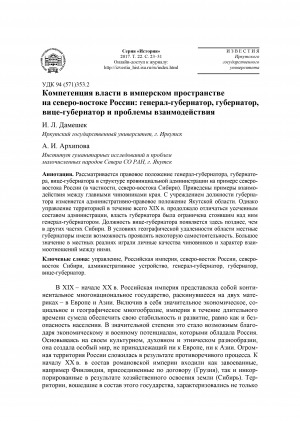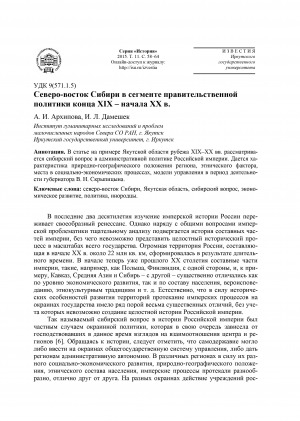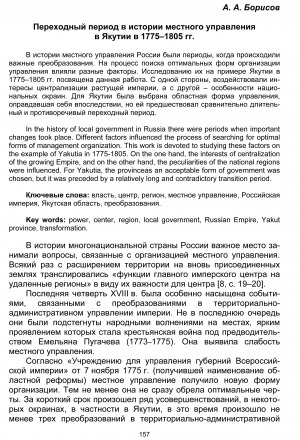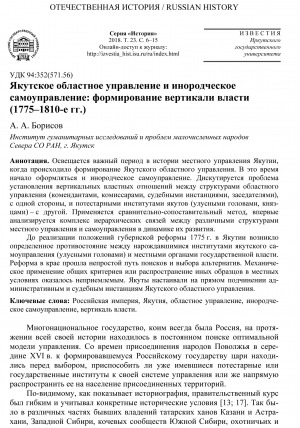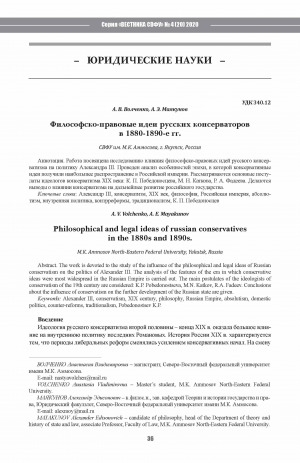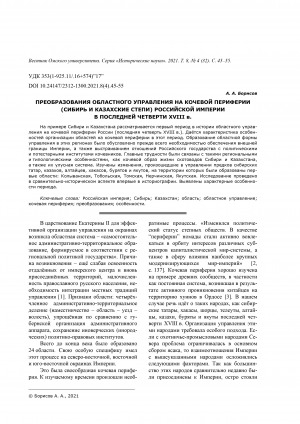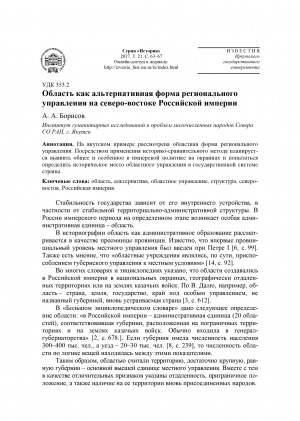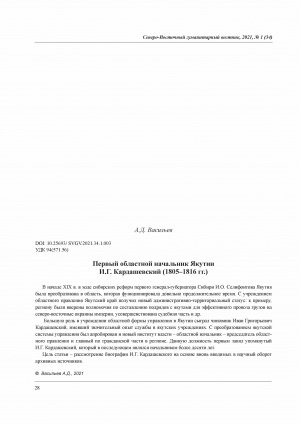Статья посвящена проблеме возникновения инородческого законодательства "степных законов" на примере якутов. Впервые в историографии рассматривается проблема в контексте якутских депутаций 17891840-х гг., выделяются три этапа в истории этих поездок. На основании ранее малоизвестных архивных материалов изучается формирование корпуса "степных законов", получившего название "Свод законов кочевых инородцев Восточной Сибири". Депутации влияли на возникновение инородческих законов, которые были признаны правительством. Происходил поиск оптимальных форм управления, что представляет собой бесценный исторический опыт.
The purpose of the presented article is to consider the role of Yakut deputations in the formation of alien (inorodcheskoe) legislation ("steppe laws"). We contribute the following tasks to achieve this goal: 1) to revise the former estimates of these trips which were interpreted as achieving the narrow corporate (class) interests of the Yakut elite, 2) to characterize the prerequisites and reasons for organizing the deputies, 3) to trace the stages in the development of this movement, 4) to test the thesis about the role of deputies in the formation of alien legislation. The research methodology is based on the concept of multiculturalism policy implemented in the Russian Empire. Legal pluralism became one of the peculiarities of ethnic-confessional policy of the Russian Empire. On the one hand, there was acting official state law, and on the other hand, there was a customary law. The problematic field of research is in the historical and legal space and includes some categories related to the history of Russian legislation on the example of Yakutia. The historical sources of research were the tsarist and Senate decrees, documents of local authorities, artifacts of Yakut customary law. In the course of the research, the author came to the following conclusions. 1) It is very important that deputy trips from the local ethnic elites, in particular, from Yakuts had a major role in the creation of laws for Siberian aliens. The Yakut elite leaders came to the understanding that only a set of measures and, above all, the adoption of legally recognized "steppe laws" could serve as a guarantor o f stable development of the Yakuts. 2) In article the history of yakut deputations was divided on three periods: the first, preparatory (17891811), the second, reformatory (1811 - the middle of 1820s), the third, the struggle for the establishment of "steppe laws" (1829-1840s). 3) The most important outcome of the trips was the formation of "steppe laws" body, known as "Code of nomad ic aliens of Eastern Siberia". On the agenda there was a question of establishment a proper set of laws for aliens, which would regulate all aspects of life of the peoples of Siberia. 4) Although the "Code" was not officially approved, but the practice of the relationship between the imperial government and aliens' leaders demonstrates that the open mutual dialogue had been developing. There was the process of searching the optimum forms of governance that provides an invaluable historical experience.



